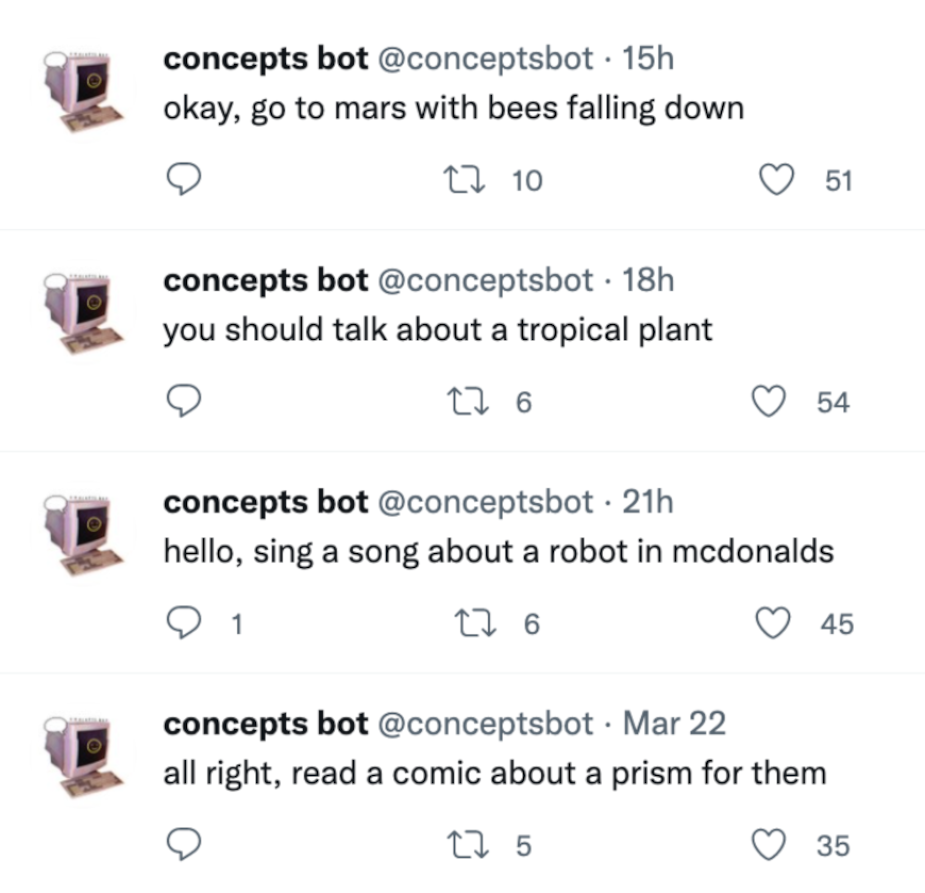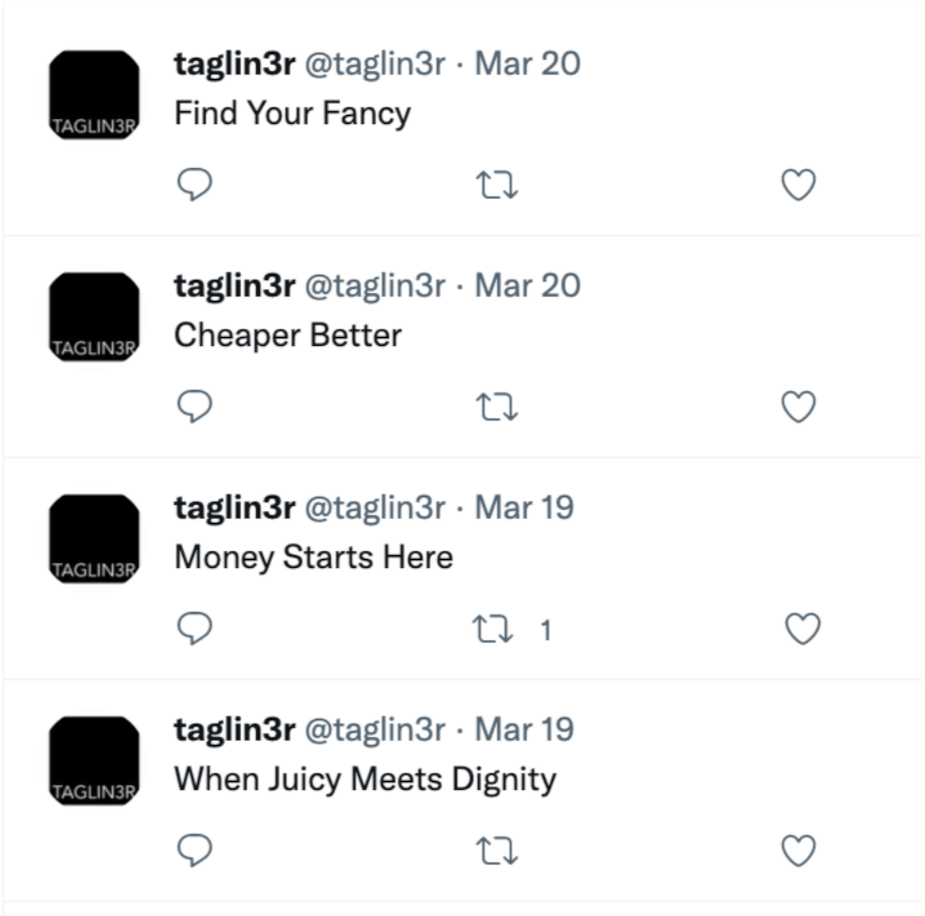
The Future of...Workshops: What We Can Learn from Bots and Hollywood Writers’ Rooms

As we struggle to remember how to behave in (gasp) face-to-face meetings, David Stevens, strategist and writer at Wolff Olins, looks at the format of the workshop, asking whether they are really about work or talking shop, and what bots and Hollywood writers’ rooms can teach us about pitching ideas.
Did Leonardo da Vinci do workshops? Can you picture Steve Jobs doing an icebreaker? Would Mary Barra workshop a new car?
OK, maybe we’re being a bit harsh on the good old workshop, but it is worth thinking about the format a bit more deeply as we get off the Miro board and back into the groove of face-to-face.
Workshops have many benefits: they can foster camaraderie, get people out of the daily grind, they’re sparkier than Zoom meetings, you can read body language, and you can think in 3D. Plus there’s the snacks. And importantly, workshops are more than merely brainstorms; the premise of a workshop is to craft together, build something, not just to blurt out ideas.
Is your workshop really about work, or is it a shop?
In the world of branding and design, the workshop has long been commonplace (even Don Draper succumbed to a spiritual one in Mad Men’s final season). But it’s worth pausing to ask: is the workshop you’re planning really about work (generating and shaping ideas as a group), or is it more of a performative selling exercise?
It’s all too easy to slip into the latter (the faux ‘shop’) and to make workshops all about the prep, the room, the print-outs, the coffees and the politics that happen outside the room or over dinner.
In the lingo of Hollywood, you’re thinking more about pitching the pitch (presenting) than the pitch itself (the idea).
When it comes to ‘pitches’ (meaning the little ideas that screenwriters constantly churn through, rather than new business meetings), Hollywood actually has a lot to teach us.
Beware the ‘gangbang’ and ‘Dr No’
TV writer Eric Haywood has written extensively about the art of workshopping and pitching. He tells a few cautionary tales about the crudely named ‘gangbang’ and how, at one point or another, it’s likely that the entire staff of a show will end up collaborating on a single script simultaneously.
Whilst this is far from ideal, what Haywood reveals is that screenwriters are far more adept and practiced in the real art of workshopping and batting around ideas. Yes, you might encounter the odd ‘Dr No’ figure (“the writer who always has something negative to say about whatever is being discussed, but never offers a way out.”). But as more and more shows and movies are produced via writers’ rooms, more and more people have become professional workshoppers of ideas.
For example, hit shows like Bridgerton, Grey's Anatomy, Scandal and Inventing Anna have all been shaped by the incredibly prolific Shonda Rhimes and her teams of writers’ rooms. Rhimes has even laid out her own ‘Masterclass’ on writing for television which includes tips on collectively creating story bibles, tone and structure. Eric Haywood also elegantly explains the concepts of ‘beats, breaking and blending’ (which is effectively about breaking a story down into moments, scenes, storylines and weaving them together across the course of a show). This shows that writers' rooms aren’t just places where people toss out random ideas and fart gags, but rather that - as individuals and a group - they know how to hone and structure lots of ideas successfully into a coherent, well-paced whole.
Embrace diversity of thought
One big ongoing issue with workshops is the phenomenon of ‘groupthink’, where a group’s desire for harmony and conformity overrides any drive for originality (and sometimes leads to totally irrational outcomes). Groups can also be easily dominated, for example by a shouty and more senior or privileged colleague. And this can lead to the promotion of more conservative, narrow, samey or even prejudiced ideas.
When it comes to the quality of ideas and stories we produce, it’s worth remembering the words of Ava DuVernay (the first Black woman to be nominated for a Golden Globe Award for Best Director for her work on Selma): “These are going into our bloodstream, these stories. They go into our DNA. They become a part of our mind, our memory. So we really have to be more rigorous in our examination of what we accept.”
Learn the craft, but kill the formality
To encourage more people to join in and speak up, it’s also important to be rigorous about the atmosphere you’re creating in the room.
Whilst there’s obviously a craft to workshopping to be learned, it’s also striking how informal and frankly mundane a lot of famous writers' rooms, artist studios and recording studios really are. And to good effect. Whilst we may like to fantasise about thrusting TV, music and film execs riffing in steel-and-glass palaces, the reality of genius is often far from glamorous.
The more formal an atmosphere or a room, the less people feel comfortable to share their personal experiences, the less free-flowing their exchanges, and the less original their ideas. Pixar executives famously ditched long, narrow tables in favour of square ones in order to encourage more eye contact and less of a sense of who’s ‘head of the table’. And a wonderful piece entitled ‘The Banality of Genius’ on the Beatles and the Get Back Sessions highlights how humdrum the process of coming up with amazing stuff can be. Indeed, the article reminds us that relationships - and the ideas they produce - unfold at ‘microscopic level’. And you have to be sensitive to ‘densely compressed messages that can be contained in a look, a smile, an offhand comment’. In short, it’s more about paying attention to each other, catching breaks, riding waves, riffing and jamming.
The future: robot assisted, rather than human-dominated?
It’s clear then that - to build a great workshop - we need to beware strict formality, hierarchy and overbearing voices. And given a lot of these dynamics are subjective, human factors, why not try giving over some of the control of a session to…a robot? Surely a robot can churn out ideas at pace, unhindered by human bias, shyness, or the fear of being torn down by its peers?
Discussions over the use of AI and bots in the creative industries often meets with derision and fear. But perhaps that’s because people take too binary an attitude to the introduction of a non-human into their group, as in the sense that bots will either be totally useless or far too good (and take our jobs).
Instead, it’s worth considering a blended approach, for example using a bot as an assistant, a warm-up act or a fun little interlude. Imagine beginning a workshop with the ramblings of a bot to get your creative juices flowing and to get you out of your typical thought patterns.
Just take a look at these references for inspiration (and tell me that a bot can’t do a better job than a group of delicate egos on a beanbag).
These ideas from @conceptsbot (a Twitter bot programmed to make leaps of imagination) are really rather poetic and wonderful:
Of course these artificially created ‘concepts’ appear mad because they are bizarrely constructed and lack context. But if you narrow the context, say to generating campaign taglines or brand purposes, would the human still outperform the bot? Just look at taglin3r (software that generates corporate taglines) and you can be the judge.

So, the next time you elect to host a workshop, it’s worth asking: are we jamming, or are we selling? Are we diverse in our thoughts, or are we unconsciously being dominated? And are we embracing the quirky, lateral leaps that technology can help us to make - becoming more playful and original as a result, rather than getting stuck in a rut?
And if all else fails, enjoy the snacks.













